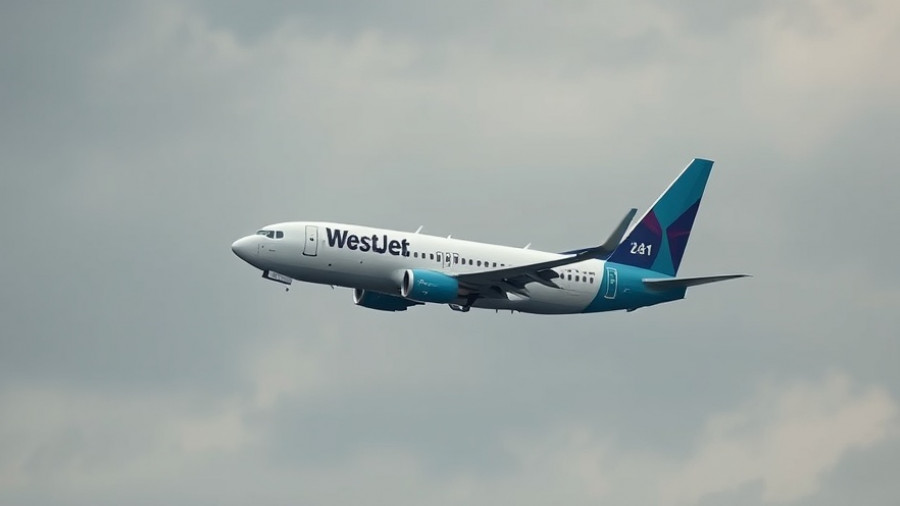
WestJet's Bold Move into No-Recline Economy: What to Expect
In a significant shift aimed at budget-conscious travelers, Canadian airline WestJet has announced plans to retrofit its aircraft cabins. The most notable change is the introduction of a new, no-recline economy section, coupled with an upgraded first-class seating experience. This strategy is not just a fleeting trend; it's part of a larger industry movement aiming to reduce costs while addressing passenger comfort.
Why Choose Fixed-Back Seating?
The decision for airlines, as highlighted by WestJet, isn't merely about reducing seat mechanisms. Fixed-recline seats significantly enhance cabin efficiency by allowing more seats without compromising too much on legroom. WestJet’s spokesperson noted that feedback from passengers indicated a preference for a fixed seat as it minimizes the conflicts over reclining etiquette—a common point of contention among passengers.
A Budget-Centric Airline Landscape
Interestingly, WestJet is part of a larger trend wherein low-cost carriers, such as Ryanair and Spirit Airlines, have adopted similar seating configurations. These airlines aim to maximize revenue while catering to the needs of budget travelers. The lack of a reclining option may initially seem uncomfortable, but it’s worth considering the trade-offs. Passengers might save considerably on ticket prices, reflecting the ongoing competition in the airline industry.
Cabin Reconfigurations and Their Implications
The retrofit will see WestJet's older aircraft, specifically the Boeing 737 MAX 8 and 737-800, transformed with varied seating options. In addition to the no-recline economy, passengers can choose an "Extended Comfort" section offering more legroom and limited recline. Travelers aiming for a more traditional flight experience with reclining options are advised to book these premium sections. With the launch set for later this month, it’s essential to remain informed about seat configurations during booking.
What Does This Mean for You?
For those who frequently travel, especially top wage earners from Philadelphia seeking value, understanding these changes is crucial. The introduction of no-recline seats presents an opportunity to explore new budget-friendly travel options. Monitoring specific configurations when booking will ensure your preferences are met. Moreover, be proactive and consider what each airline offers and how that aligns with your travel experience expectations.
Potential Controversy Ahead
The airline's announcement has already sparked varied reactions from travelers and industry experts alike. Some appreciate the economical approach, while others are skeptical about the loss of reclining seats. An industry analyst has even labeled this change as potentially detrimental for WestJet, suggesting it may repel passengers rather than attract them. Will this transformation find traction in the long-term market? Only time will tell.
Ultimately, staying informed about these developments can help travelers make better choices when scheduling their flights and ensure they get the best value for their money. As WestJet forges ahead with its initiatives, be sure to weigh your options to create a travel experience that suits your needs and expectations. If you travel frequently, keep an eye on how these adjustments shape the future of affordable air travel.
 Add Row
Add Row  Add
Add 




Write A Comment